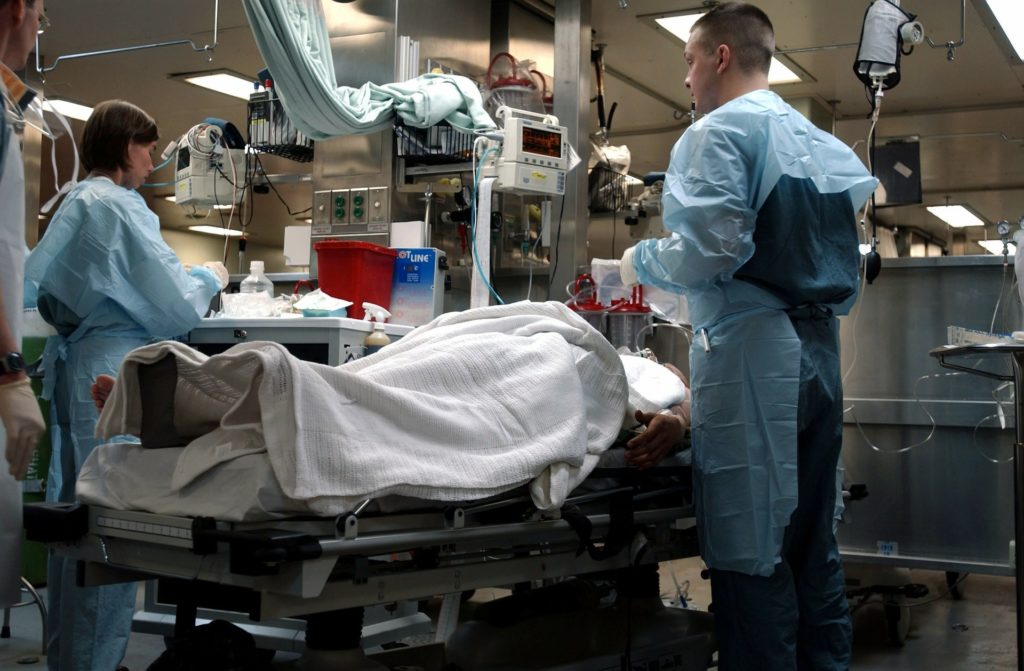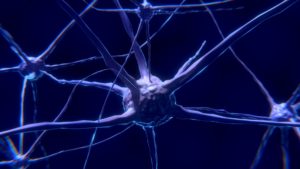
An important recent study found a possible link between bariatric surgery and eating disorders and that overemphasis on body shape and weight in post-bariatric surgery patients led to eating disorders, depression, and disability.
The researchers sought to determine if post-bariatric surgery patients who struggled with greater loss of control in eating and overemphasis on weight/shape were more at risk for complications. They investigated if the research participants suffered from greater depression, disability, and disordered eating behaviors.
The study, partially funded by a National Institute of Health grant, was conducted at the Yale Bariatric/Gastrointestinal Surgery Center of Excellence. It was published on June 15, 2019, in the Obesity Journal.
 A group of 145 people was studied who routinely experienced feeling out of control of their eating post-sleeve gastrectomy thus suggesting a link between bariatric surgery and eating disorders.
A group of 145 people was studied who routinely experienced feeling out of control of their eating post-sleeve gastrectomy thus suggesting a link between bariatric surgery and eating disorders.
Their tendencies toward eating disorder behaviors, depression, and disability were evaluated by three well-respected assessment tools:
- Eating Disorder Examination (EDE)
- Bariatric Surgery Version Interview
- Beck Depression Inventory (BDI-II)
- Sheehan Disability Scale (SDS)
The study concluded that over 50% of post-bariatric patients experiencing regular out of control eating, who overly focused on their body weight and shape experienced greater depression, eating disorder symptoms, and disability.
The researchers suggested that a 6-month evaluation of post-bariatric surgery patients experiencing these symptoms might be a significant indicator that greater follow up care is needed:
- Loss of Control While Eating
- Over-emphasis on Weight and Body Shape
They also stated that further research needs to be conducted to determine the associated impact on weight loss and well-being of these individuals.
Dr. Mark Gold states:
“This is a very important paper for patients in understanding risks; bariatric providers in improving outcomes; and ED clinicians who have wondered about body image distortions and why they persist even with weight loss. Co-occurrence with Binge Eating Disorder (BED) is an all too common outcome.
Overvaluation of weight and body image distortions may be a more important marker. It may possibly relate to somatocortical changes during the course of obesity or others but a more important marker than we realize”.

Additionally, this study brings to light the often overlooked continuum of bariatric surgery and eating disorders from extreme obesity/compulsive eating to anorexia/starvation.
The disorders are similar in many ways, and an individual can experience aspects of this disordered eating continuum at any/all stages.
The medical/behavioral health global community would greatly benefit from increased open communication, avoidance of polarization on the topic of eating disorders and weight issues, and more interactive care between all providers.
Disordered eating sufferers need our collective help and wisdom, not relentless debate and polarization between the weight loss community and the eating disorder community.
It is exciting to see this collaboration by researchers to further investigate how to aid in successful outcomes for those struggling with both weight and eating disorder issues.
Source:
Ivezaj, V., Wiedemann, A. A., & Grilo, C. M. (2019). Overvaluation of Weight or Shape and Loss-of-Control Eating Following Bariatric Surgery. Obesity Journal. doi:10.1002/oby.22514
About the Author:
 Jacquelyn Ekern, MS, LPC – Founder & Director founded Weight Hope in January 2016, after experiencing years of inquiries for help by visitors to our well-regarded sister site, Eating Disorder Hope. Many of the eating disorder sufferers that contact Eating Disorder Hope are looking for help in managing and living a healthier lifestyle. They are sick of dieting and repeatedly gaining and losing weight. They have not been diagnosed with an eating disorder, but are still feeling profound pain and inner conflict around their weight, eating and health.
Jacquelyn Ekern, MS, LPC – Founder & Director founded Weight Hope in January 2016, after experiencing years of inquiries for help by visitors to our well-regarded sister site, Eating Disorder Hope. Many of the eating disorder sufferers that contact Eating Disorder Hope are looking for help in managing and living a healthier lifestyle. They are sick of dieting and repeatedly gaining and losing weight. They have not been diagnosed with an eating disorder, but are still feeling profound pain and inner conflict around their weight, eating and health.
Jacquelyn believes in holistic recovery from diet/weight/body obsession that addresses all of the destructive patterns or behaviors engaged in by the individual. It became clear that it would be helpful to also have a site that deals foremost with weight, health, lifestyle, and the psychology behind making healthier choices.
Jacquelyn Ekern is a licensed therapist and she manages the Weight Hope, Addiction Hope and Eating Disorder Hope organizations and online communities.
Jacquelyn has a Bachelor of Science in Human Services degree from The University of Phoenix and a Masters degree in Counseling/Psychology, from Capella University. She is a member of the National Eating Disorder Association (NEDA), Academy of Eating Disorders (AED), the Eating Disorders Coalition (EDC) and the International Association of Eating Disorder Professionals (iaedp).
